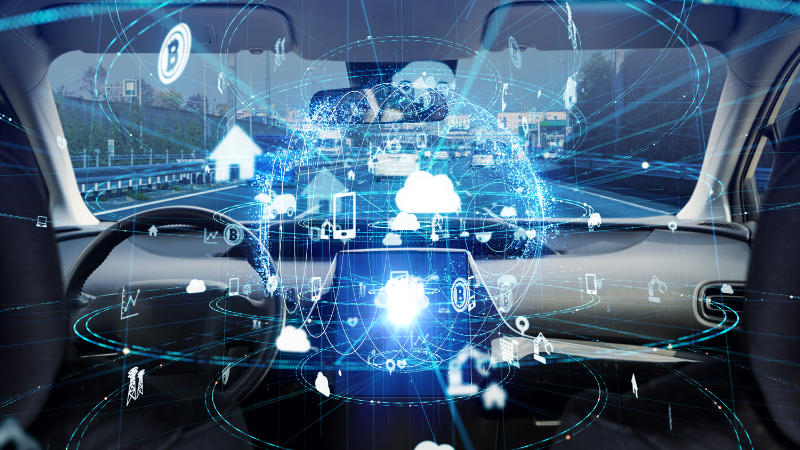One of the key advancements in recent times within the automotive industry has been the focus on the development of autonomous vehicles and most experts within the industry believe that it is now a question of ‘when’ rather than ‘if’ these types of cars will become the norm.
And how will the ownership model change?
One of the many questions that arise with the introduction of this technology is whether or not it will have an impact when it comes to the ownership model for cars. The current model of ownership has been around almost as long as the vehicles themselves with the private purchase and use of cars being the norm.
The prospect of autonomous cars becoming commonplace, however, has raised questions as to whether this model will continue. Some experts believe that a structural shift in ownership is underway as the popularity of autonomous cars continues to rise – switching from private to shared usage vehicles.
If the trend towards autonomous vehicles continues to rise in numbers, the anticipated structural shift will drive the sharing model, which means that existing services like public transportation will also dramatically change. In the future, autonomous vehicles will bring forth a new form of transportation and taxi journeys will forever change.
Without the need or use for a human driver in fully autonomous cars, the costs of using a driverless or 'robotaxi' will drop significantly. And here in this scenario, the switch from private car ownership to shared for personal use would be an attractive option for most.
What's more, this 'vehicles as a service' approach will also be especially appealing to those in the city or where parking is at a premium. As such, the general thought behind the ownership model is: yes – experts are anticipating a massive decline in private car ownership and a spike in the shared car model.
Wouldn’t car ownership actually increase then?
There are always two sides to an argument and, in this scenario, some experts are arguing that autonomous vehicles will not actually affect the way that cars are used or owned but only alter some aspects as to how we own these vehicles in comparison.
Thanks to the more simplistic approach of engineering in electric and autonomous cars, it's predicted that prices will decrease significantly as production and manufacturing costs go down. In fact, autonomous and electric vehicles will be cheaper to buy and maintain in future, making them more attractive and affordable to the masses!
And due to the driverless nature of autonomous cars, users without a driver's license will be able to buy, use and travel without ever needing to learn to drive as drivers will be obsolete. This will not only encourage even more ownership but will also inspire a better use of time that would have otherwise be spent on driving – passengers can choose to watch films, continue their work or spend time with their families.
That said, these benefits will most likely only appeal to those in metropolitan areas or in large towns with those living outside urban areas actually finding it inconvenient in comparison to have to wait to 'hop on, hop off' from one place to another. The reason for this is simply down to the anticipated supply and demand in cities versus the suburban areas so, chances are, ownership of autonomous vehicles may rise in some areas and not in others.
Impact on the job market
Regardless of which way ownership of these autonomous vehicles goes (and it will probably be a mixture of the two) one thing that’s clear is that the demand for personal transport is on the rise. This, in turn, means that a more buoyant job market will exist to support this trend with little to no change in the types of roles needed within the automotive sector.
Production-wise, as most autonomous cars are likely to be fully-electric, the manufacturing and maintaining process will simplify and upkeep costs are expected to drop significantly. The vehicles' longevity and durability will probably inspire new automotive business concepts where parts are interchangeable and can be upgraded. And according to some industry analyst and experts, cars in the future will be able to adapt according to the needs of passengers.
For instance, families will be able to reconfigure the interiors of their vehicles to adapt to the needs of the family as children grow and if so, this could potentially ignite a whole new stream of businesses that caters to designing car interiors for maximum efficiency or luxury. In other words, autonomous cars will most likely introduce a fleet of new services, products and jobs.
Read Autonomous Vehicles and the Future of Jobs for more.
Conclusion
The removal of the driver from the car equation promises to be the most significant change in personal transport since the replacement of horse by vehicle in the 20th century.
This will have an enormous impact on the automotive industry and in supporting sectors but fundamentally the need for personal transportation from one point to another will remain. The demand for vehicles, the approach to ownership and, the configuration of the cars will unquestionably change but hey what innovation didn't disrupt the norm? Ultimately, the rise of autonomous cars is here to stay and, new skills will be needed to meet the changing natures of this industry as jobs and user roles shift.
Want to work in the engineering sector? Browse our full list of jobs in the engineering sector.






